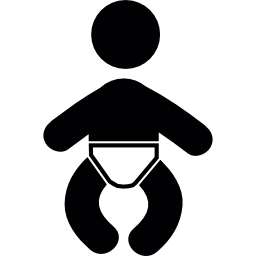 Over the years, many people have told me, and I may have told one or two myself, that you can’t really be a composer and have a family. Now that I’m nine+ years into fatherhood, I’d like to share my current perspective.
Over the years, many people have told me, and I may have told one or two myself, that you can’t really be a composer and have a family. Now that I’m nine+ years into fatherhood, I’d like to share my current perspective.
History gives us conflicting – even paradoxical – evidence. Bach’s twenty-one kids didn’t seem to slow him down even a tad. On the other hand, we should probably be grateful (for their sake, if not for his and ours) that there were no little Beethovens demanding Papa Ludwig’s attention.
Although history is often illuminating, the lessons are so inconclusive and the expectations of parenthood have changed so much over the years that it really makes more sense to stick with the present.
Occupying ones imagination with music that nobody else can hear requires a great deal of focused attention, and young children would seem to be designed to suck up focused attention like an invading army of vacuum cleaners bearing down on a colony of dust bunnies. I think it is fair to say that having children is going to put at least a temporary dent in the depth – if not the breadth — of your output.
Also, with thousands of composers crawling the planet chasing commissions, performances and other signs of attention, one is definitely put at a disadvantage if preoccupied with the well-being of wholly dependent fledglings. There is only so much time in each day, and lost time is one of a composer’s worst enemies.
On the other hand, nothing gives you a clearer perspective on your own childhood – and any current childish tendencies you may have retained – than having kids. Progeny can be very effective playback devices, helping you revisit your most cherished limitations and assumptions in real time. What you do with that perspective is up to you. For some, that kind of perspective can stunt creativity; for others (and I’ll go ahead and put myself in this category), it provides creative clarity and direction.
An immeasurable element for consideration is the love one gives and receives as a parent, a love that only resembles other loves superficially. Again, what you do with that love is up to you. For some, it provides contentment that serves as a palliative to the itch of ambition, slowing down the urge to create. For others, it can bring a measure of self-confidence that impels them to seek otherwise unattempted levels of achievement.
I can only speak directly about fatherhood, and only from my own experience, and my experience is, like everyone’s, limited. So far, the positives have far exceeded my hopes.
Motherhood is a topic both closely related and unfathomably distant. In all the discussions about the differences in opportunity for male and female composers, I don’t believe I’ve heard specific mention of the difference between being a composer who is a woman and being a composer who is both a woman and a mother. Anecdotally, I can say that the composers I’ve known who were also mothers didn’t have large families. If anyone can point me to data on this topic, I’d be much obliged. It makes sense to blame Robert for Clara Schumann’s lack of development as a composer (though their letters show him urging her in that direction), but it’s difficult to understand why one doesn’t hear of her seven children being an impediment.
I can only guess what it would be like to be the mother of many children and maintain a life as a composer. Does anyone know from personal experience?
I realize I’m treading on somewhat treacherous terrain, full of chicken-and-egg ramifications, so I’ll just add that I don’t have an agenda, other than to raise questions I haven’t heard raised.
And, of course, I’m sensitive to the fact that just because I haven’t heard a topic discussed in no way assures that the discussion hasn’t taken place out of my earshot.
